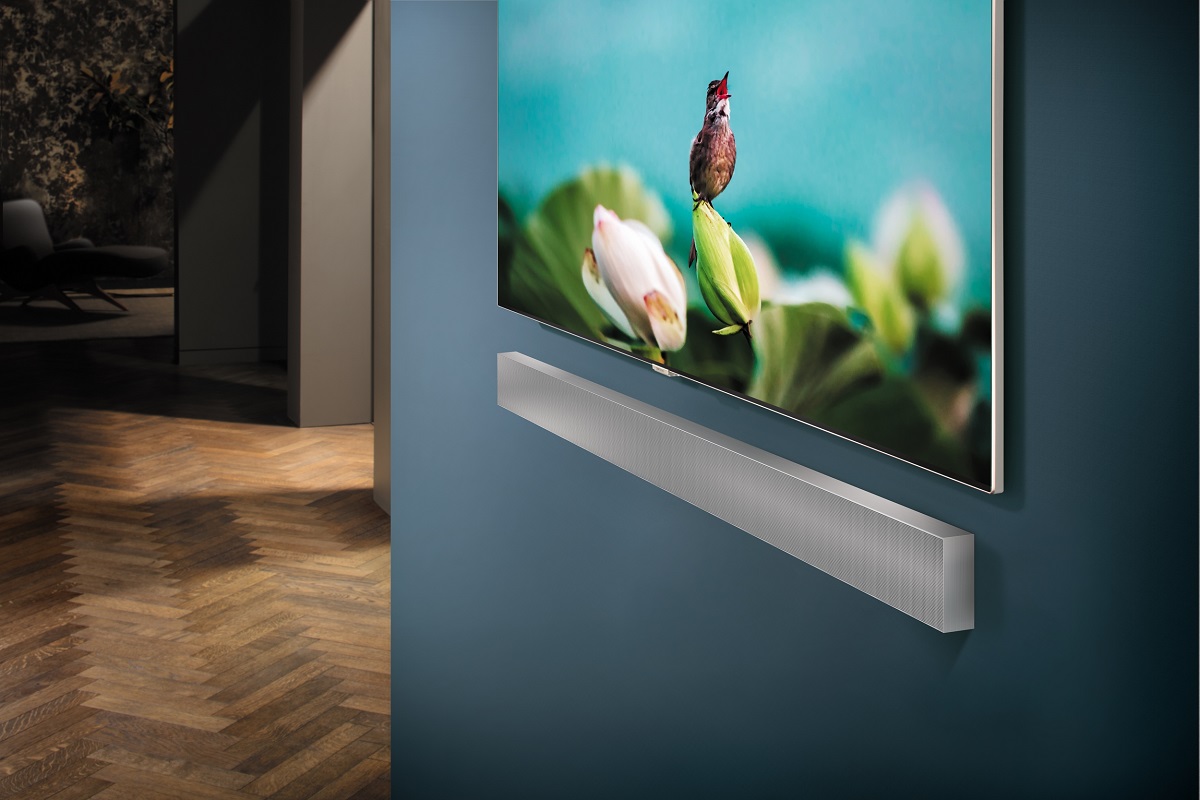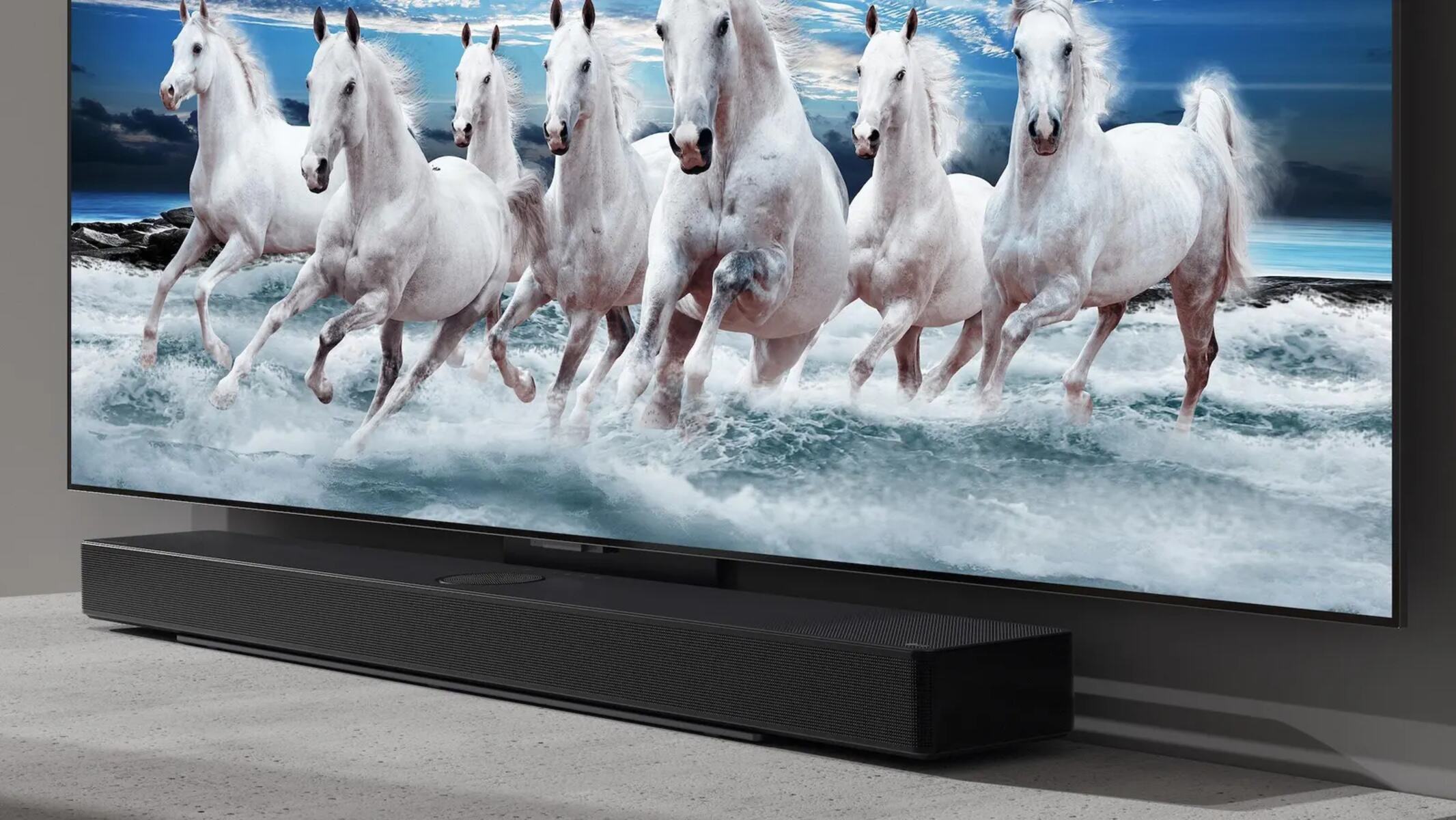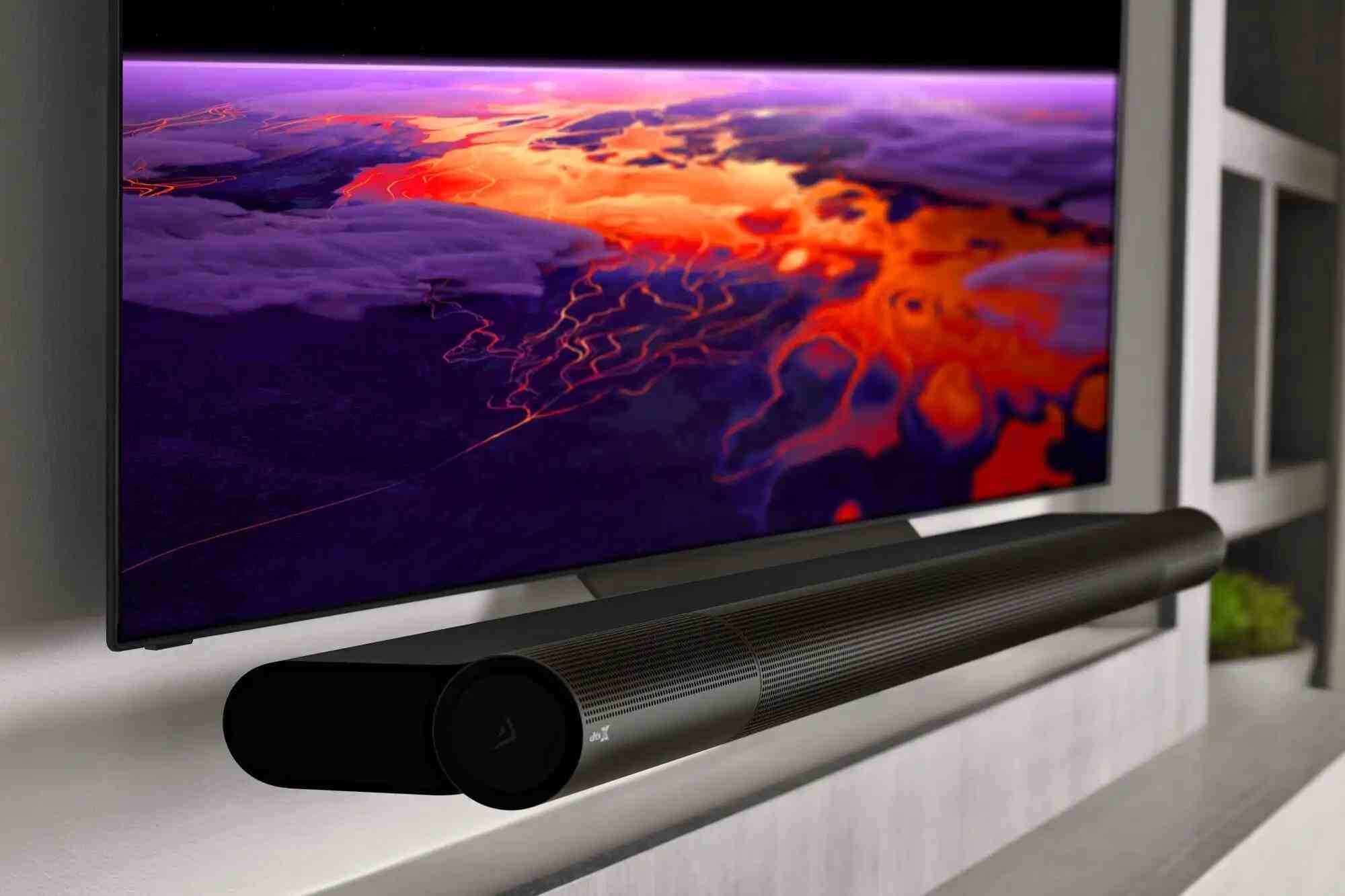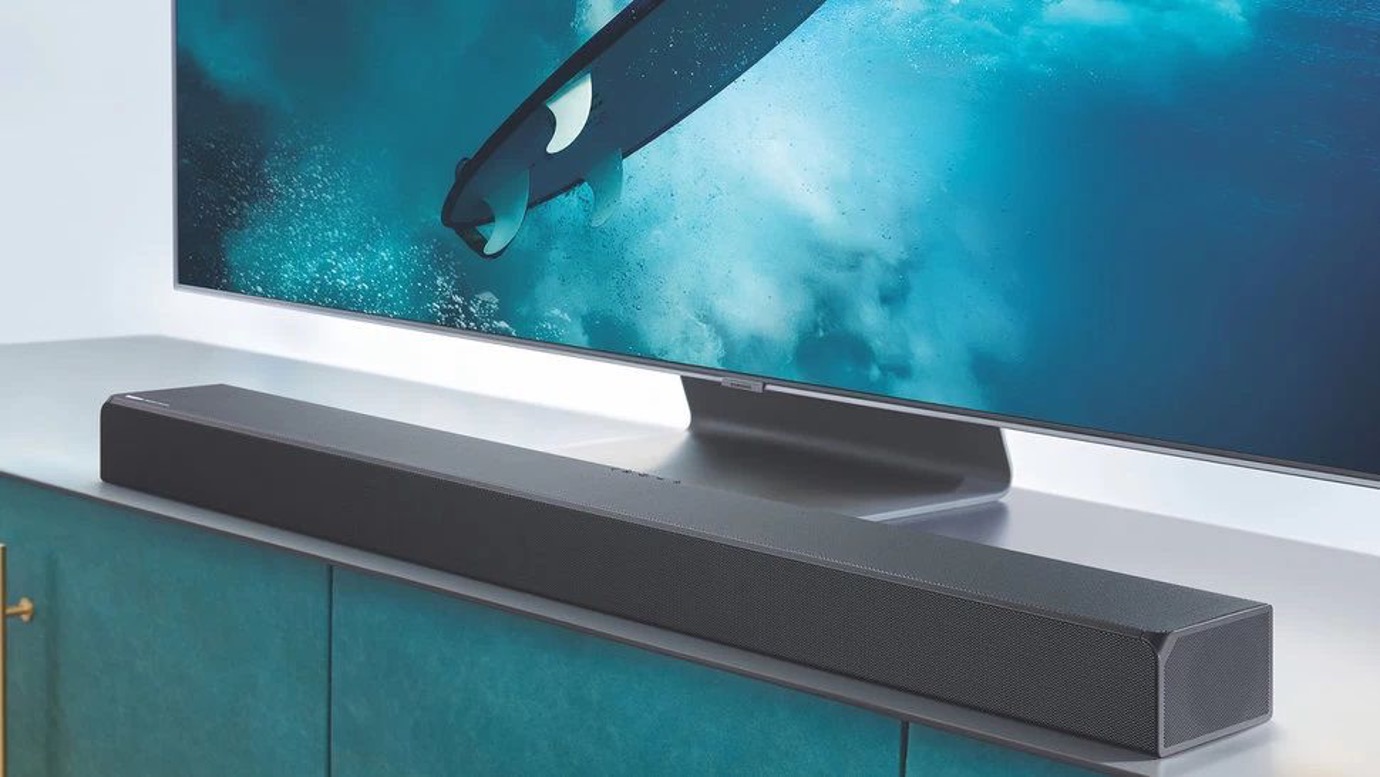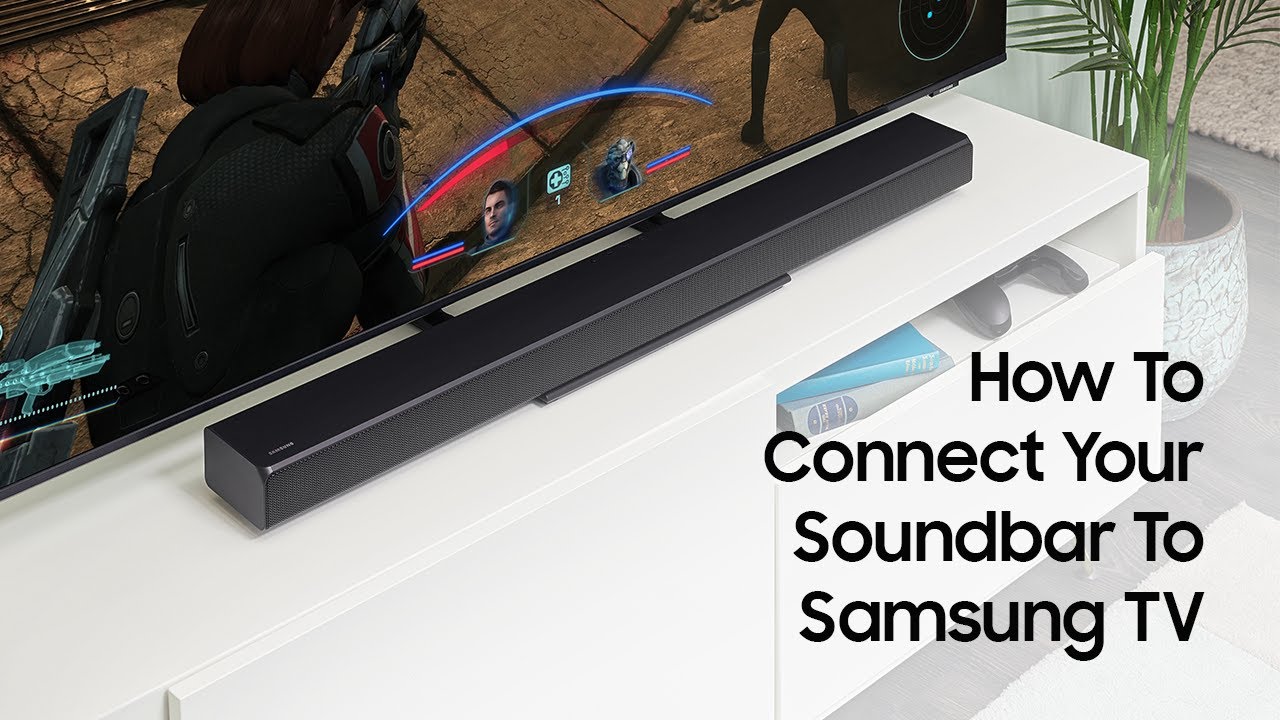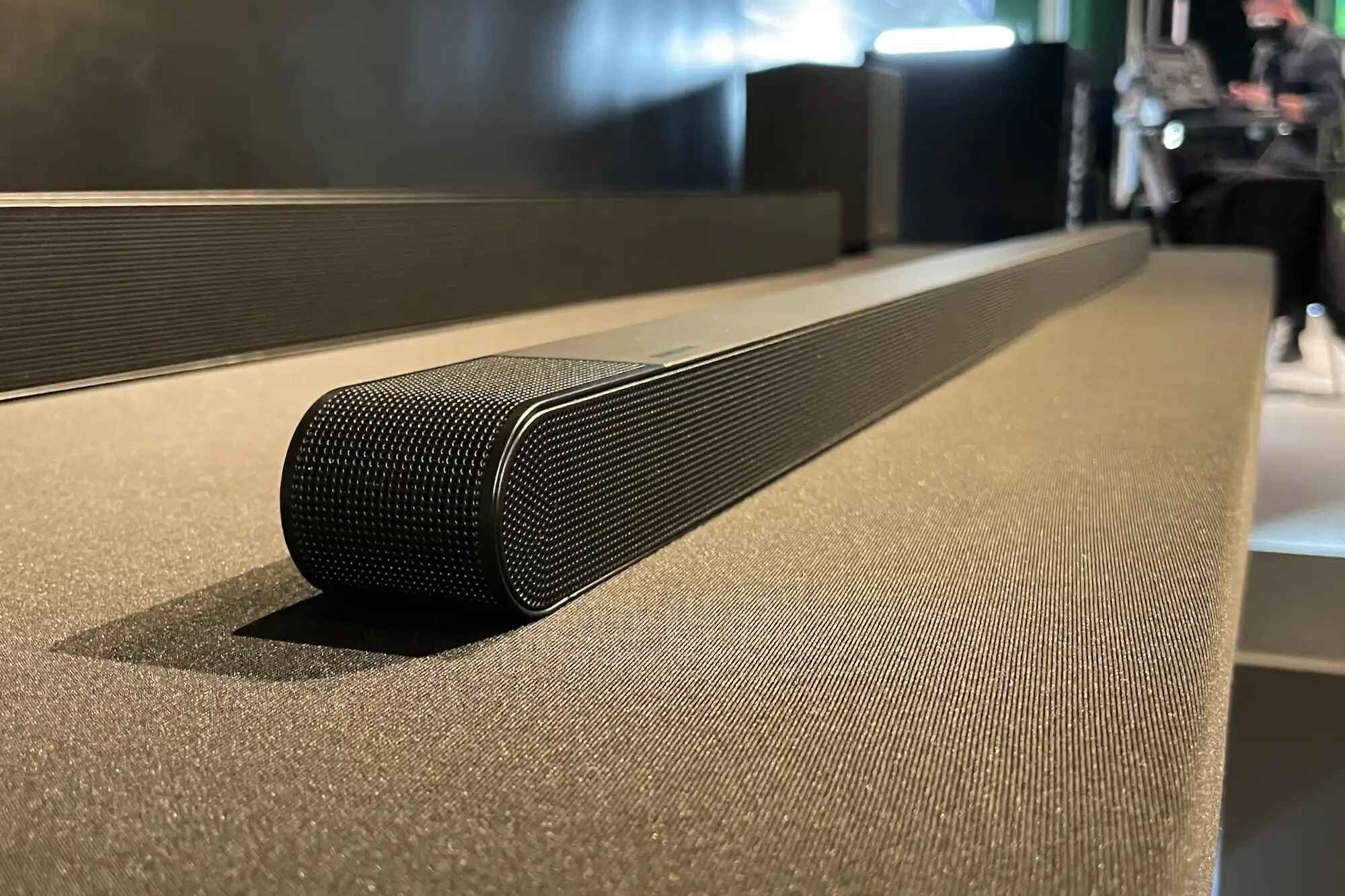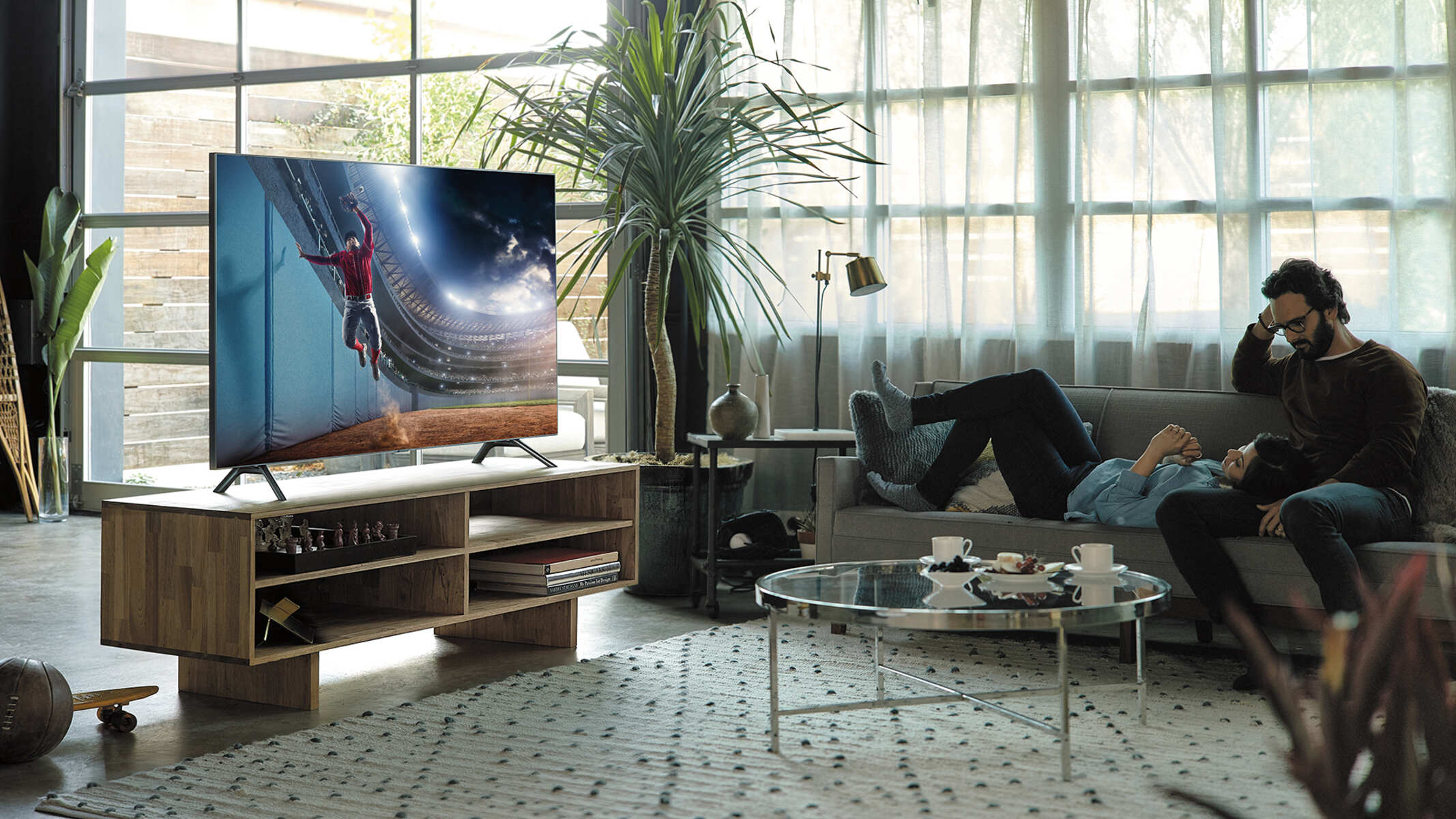Common Causes of Sound Delay on Samsung Soundbar
Experiencing a sound delay on your Samsung soundbar can be frustrating, especially when you’re trying to enjoy your favorite movies or TV shows. There can be several factors that contribute to this issue. Understanding the common causes can help you troubleshoot and resolve the problem effectively.
1. Connection Issues: One of the main reasons for sound delay is a faulty or loose connection between your TV and soundbar. Ensure that all cables are securely plugged in and that there are no obstructions or interference.
2. Audio Delay Settings: Some TVs have an audio delay feature that allows you to synchronize the audio with the visuals. If this setting is not properly configured, it can result in a noticeable delay. Check your TV’s audio settings and adjust the delay if needed.
3. Audio Processing Features: Soundbars often come with various audio processing features like surround sound, virtual sound, or audio enhancements. These features may introduce a slight delay in processing the sound signals, causing an audio delay. Try disabling any unnecessary audio processing features to see if it resolves the issue.
4. Firmware Updates: Outdated firmware can sometimes cause sound delay problems. Check if there is a firmware update available for your Samsung soundbar and follow the manufacturer’s instructions to update it. Firmware updates often include bug fixes and performance improvements.
5. Factory Reset: Performing a factory reset on your soundbar can help resolve any software-related issues that may be causing the sound delay. Keep in mind that a factory reset will erase all your custom settings, so it’s advisable to take note of your preferred settings before proceeding.
6. Incorrect HDMI Cable: A faulty or incompatible HDMI cable can also contribute to sound delay. Try using a different HDMI cable or consider using alternative audio connections such as optical or RCA cables to see if the issue persists.
7. Power Supply: Inadequate or unstable power supply can sometimes lead to sound delay problems. Ensure that your soundbar is connected to a stable power source and that there are no power fluctuations or electrical issues in your setup.
If you’ve exhausted all troubleshooting options and the sound delay issue persists, it’s recommended to reach out to Samsung customer support or consult a professional for further assistance. They can provide you with personalized solutions or suggest hardware repairs if necessary.
How to Troubleshoot Sound Delay Issues on Your Samsung Soundbar
Experiencing sound delay issues on your Samsung soundbar can disrupt your audio experience. Fortunately, there are several troubleshooting steps you can take to resolve these problems. Follow the steps below to troubleshoot and potentially fix the sound delay on your Samsung soundbar.
1. Check the Connection Between the Soundbar and TV: Ensure that the HDMI or audio cables connecting your soundbar to your TV are securely plugged in. Sometimes, a loose connection can cause a delay in audio playback. Remove and reinsert the cables to ensure a proper connection.
2. Adjust Audio Delay Settings on Your TV: Access the audio settings on your TV and check if there is an option to adjust the audio delay. If available, make small adjustments until you find the setting that syncs the audio with the visuals on the screen.
3. Disable Audio Processing Features on Your Soundbar: Soundbars often come with various audio processing features, such as virtual sound or surround sound. These features can sometimes introduce a delay in the audio playback. Disable any unnecessary audio processing features to see if it resolves the sound delay issue.
4. Update the Firmware on Your Soundbar: Outdated firmware can cause performance issues, including sound delay problems. Check the Samsung website or consult the user manual to find instructions on how to update the firmware on your specific soundbar model. Updating the firmware can often address software-related issues.
5. Reset Your Soundbar to Factory Settings: Performing a factory reset on your soundbar can help reset any settings or configurations that might be causing sound delay. Keep in mind that a factory reset will erase any personalized settings, so make a note of your preferred settings before proceeding with the reset.
6. Use a Different HDMI Cable or Audio Connection: Sometimes, a faulty HDMI cable can cause sound delay issues. Try using a different HDMI cable or consider using alternative audio connections, such as optical or RCA cables. Switching to a different cable or connection type can help identify if the issue is related to the cable or the soundbar itself.
7. Ensure Proper Power Supply to Your Soundbar: Inadequate or fluctuating power supply can affect the performance of your soundbar and lead to sound delay problems. Make sure that your soundbar is connected to a stable power source and that there are no power fluctuations or electrical issues in your setup.
If you have tried all of the above troubleshooting steps and are still experiencing sound delay issues with your Samsung soundbar, it is recommended to contact Samsung customer support or seek professional assistance. They can provide you with further guidance and potentially identify any hardware issues that may require repair or replacement.
Check the Connection Between the Soundbar and TV
When troubleshooting sound delay issues on your Samsung soundbar, one of the first things to check is the connection between the soundbar and your TV. A loose or faulty connection can cause audio delays or disruptions. Follow the steps below to ensure a proper connection:
Step 1: Examine the cables – Ensure that all cables connecting your soundbar and TV are securely plugged in. Check both ends of the HDMI or audio cables to ensure a tight and secure connection. If you are using an HDMI cable, consider using a high-quality cable to minimize any potential issues.
Step 2: Verify the HDMI input – Confirm that the HDMI cable is connected to the correct input on your TV. Some TVs have multiple HDMI inputs, so make sure you have connected the soundbar to the right HDMI port designated for audio output.
Step 3: Remove and reconnect the cables – If you suspect a loose connection, try removing and then reconnecting the cables. Ensure that they are firmly plugged into their respective ports. Sometimes, a simple reconnection can resolve any connection-related issues.
Step 4: Check for physical damage – Examine the cables for any signs of physical damage, such as frayed wires or bent connectors. If you notice any damage, replace the cables with new ones to ensure a proper and reliable connection.
Step 5: Remove any obstacles – Ensure that there are no obstructions or physical objects blocking the connection between the soundbar and the TV. Objects can interfere with the signal and cause audio delays or disruptions.
Step 6: Power cycle your devices – Sometimes, power cycling your TV and soundbar can help establish a better connection. Turn off both devices, unplug them from the power source, wait for a few minutes, and then plug them back in. Turn on your TV first and then your soundbar, allowing them to initialize properly.
If you have followed these steps and verified that the connection between your soundbar and TV is secure, move on to the next troubleshooting steps. It’s important to eliminate the possibility of connection issues before exploring other potential causes of sound delay.
Adjust Audio Delay Settings on Your TV
Another potential cause of sound delay issues on your Samsung soundbar is misconfigured audio delay settings on your TV. Adjusting these settings can help synchronize the audio with the visuals on your screen. Follow the steps below to adjust the audio delay settings on your TV:
Step 1: Access the audio settings – Using your TV remote, navigate to the settings menu. Look for the audio or sound settings option. The exact location and name of this option may vary depending on the TV model.
Step 2: Find the audio delay settings – Within the audio settings menu, you should find an option to adjust the audio delay or synchronization. It may be labeled as “Audio Delay,” “Audio Sync,” or something similar. Consult your TV’s user manual or online support resources for specific instructions on locating this setting for your TV model.
Step 3: Adjust the audio delay – Once you’ve found the audio delay setting, you can usually adjust it in milliseconds (ms). Start by making small adjustments, such as increments or decrements of 10ms, and test the audio synchronization. You may need to go through a trial-and-error process to find the optimal setting that eliminates the sound delay.
Step 4: Test different content – It’s essential to test the audio delay settings with various types of content, such as movies, TV shows, or streaming services. Different content may have different audio and video encoding, which can affect the synchronization. Play different media and carefully observe if the sound is in sync with the visuals.
Step 5: Save your settings – Once you have found the optimal audio delay setting, make sure to save the changes. The process for saving the settings may vary depending on your TV model. Look for an option to confirm or apply the changes you made to the audio delay settings.
Note: If your TV does not have a specific audio delay setting, you can also explore other audio-related settings, such as lip sync or audio output delay options, that may achieve a similar result. Consult your TV’s user manual or support resources for more information on available audio settings.
By adjusting the audio delay settings on your TV, you can potentially resolve sound delay issues and enjoy a synchronized audiovisual experience while using your Samsung soundbar.
Disable Audio Processing Features on Your Soundbar
Audio processing features on your Samsung soundbar, such as virtual sound, surround sound, or audio enhancements, can sometimes introduce a delay in the audio playback. Disabling these unnecessary features may help resolve sound delay issues. Follow the steps below to disable audio processing features on your soundbar:
Step 1: Identify audio processing features – Review the user manual or consult the manufacturer’s website to identify the specific audio processing features available on your Samsung soundbar model. Common features include virtual sound, surround sound modes, or audio enhancement options.
Step 2: Access the soundbar settings – Use your soundbar remote or control panel to access the settings menu. Look for an option related to audio processing or sound modes. The exact location and name of this option may vary depending on the soundbar model.
Step 3: Disable unnecessary audio processing – Once you’ve found the audio processing settings, disable any unnecessary features that you do not regularly use or need. This will vary based on personal preference, but for troubleshooting sound delay issues, it is recommended to temporarily disable all audio processing features.
Step 4: Test the sound delay – After disabling the audio processing features, play different types of content and observe if the sound delay issue persists. It’s important to test with various media, such as movies, TV shows, or music, to ensure that the sound remains synchronized with the visuals.
Step 5: Enable essential audio processing – If you find that disabling all audio processing features resolves the sound delay, but you still desire certain effects, you can selectively enable essential features. Experiment with enabling one feature at a time and testing the sound delay to identify if any specific feature introduces the latency.
Note: Remember to consult the user manual or online resources specific to your soundbar model for detailed instructions on accessing and adjusting the audio processing settings.
By disabling unnecessary audio processing features on your Samsung soundbar, you can mitigate potential delays and enjoy a more seamless audio experience. Keep in mind that temporarily disabling these features may impact the audio quality or surround sound effects but can help identify if they contribute to the sound delay issue.
Update the Firmware on Your Soundbar
If you’re experiencing sound delay issues on your Samsung soundbar, outdated firmware could be the culprit. Firmware updates often include bug fixes, performance enhancements, and compatibility improvements, so it’s crucial to keep your soundbar up to date. Follow these steps to update the firmware on your Samsung soundbar:
Step 1: Identify your soundbar model – Take note of the model number of your Samsung soundbar. You can find this information on the product packaging, user manual, or on the soundbar itself.
Step 2: Check for updates – Visit the Samsung support website or use the Samsung SmartThings app to check if there are any available firmware updates for your specific soundbar model. Look for the support section or search for your soundbar model using the provided search feature.
Step 3: Download the firmware – If a firmware update is available, follow the instructions provided on the Samsung support website to download it. Make sure to choose the firmware that corresponds to your soundbar model to avoid any compatibility issues.
Step 4: Prepare a USB drive – Most firmware updates for Samsung soundbars require you to transfer the downloaded firmware file to a USB drive. Insert a compatible USB drive into your computer and format it to ensure it’s empty and ready for the firmware transfer.
Step 5: Transfer the firmware – Locate the downloaded firmware file on your computer and copy it to the root directory of the USB drive. Ensure that the file is not within any subfolders on the drive.
Step 6: Disconnect the soundbar from power – Before performing the firmware update, disconnect the soundbar from the power source by unplugging it from the wall outlet. Wait for a few minutes before proceeding to the next step.
Step 7: Update the firmware – Plug the USB drive containing the firmware file into the designated USB port on the soundbar. Reconnect the soundbar to the power source, and the firmware update should initiate automatically. Follow the on-screen prompts or refer to the user manual for any specific instructions during the update process.
Step 8: Wait for completion – Allow the firmware update to complete without interrupting or turning off the soundbar. The update process may take a few minutes, so be patient and let it finish.
Step 9: Verify the update – After the firmware update is complete, verify that the soundbar is running the updated firmware version. Check the soundbar’s menu or settings for information regarding the firmware version. If it matches the downloaded firmware, the update was successful.
Regularly updating your soundbar’s firmware can help resolve sound delay issues by ensuring your device has the latest software improvements. It’s recommended to check for firmware updates periodically to maintain optimal performance and compatibility with your Samsung soundbar.
Reset Your Soundbar to Factory Settings
If you’re still experiencing sound delay issues on your Samsung soundbar, performing a factory reset can help resolve any software-related problems that may be causing the delay. Follow these steps to reset your soundbar to its factory settings:
Step 1: Power off your soundbar – If your soundbar is currently powered on, turn it off by pressing the power button or using the remote control.
Step 2: Locate the reset button – Look for a small reset button on your soundbar. It is usually located on the back or bottom of the unit. You may need a thin object like a paperclip to press the button.
Step 3: Press and hold the reset button – Using a paperclip or similar tool, press and hold the reset button for about 10-15 seconds. Keep holding the button until you see the soundbar’s lights flash or hear a sound indicating that the reset process has started.
Step 4: Release the reset button – Once you see the lights flash or hear the reset confirmation sound, release the reset button. The soundbar will now begin the reset process, which may take a few moments to complete.
Step 5: Wait for the soundbar to restart – Allow the soundbar to finish the reset process and restart. This may take a bit of time, so be patient and avoid interrupting the process.
Step 6: Set up your soundbar again – After the reset is complete, you’ll need to set up your soundbar as if it were brand new. Follow the initial setup instructions provided with the soundbar, including connecting it to your TV and configuring any desired settings.
Note: Keep in mind that performing a factory reset will erase all your personalized settings and configurations, including any saved sound modes or audio adjustments. If possible, make a note of your preferred settings before proceeding with the reset.
Performing a factory reset clears any potential software glitches or misconfigurations that may be causing sound delay problems. It gives your soundbar a fresh start, allowing you to set it up again from scratch and potentially resolve the sound delay issue.
Use a Different HDMI Cable or Audio Connection
If you’re still facing sound delay issues with your Samsung soundbar, the problem could be related to a faulty or incompatible HDMI cable or audio connection. Trying a different cable or connection can help identify and resolve the issue. Follow these steps to troubleshoot the HDMI cable or audio connection:
Step 1: Identify the type of connection – Determine whether you’re using an HDMI cable, optical cable, RCA cables, or any other type of audio connection between your TV and soundbar. This will help you determine what alternative connection option to try.
Step 2: Replace the HDMI cable – If you’re using an HDMI cable to connect your TV and soundbar, try using a different HDMI cable. The current cable could be faulty or incompatible, causing the sound delay. Use a high-quality HDMI cable that is known to work well with audio setups.
Step 3: Try an alternative audio connection – If you have an optical cable or RCA cables available, disconnect the HDMI cable and use one of these alternative audio connections. Connect the optical cable or RCA cables from the audio output on your TV to the corresponding input on your soundbar. This can help determine if the sound delay is specific to the HDMI connection.
Step 4: Test different content – Once you’ve replaced the HDMI cable or tried an alternative audio connection, play various types of content, such as movies, TV shows, or music, to test if the sound delay persists. This will help you determine if the issue was stemming from the cable or connection itself.
Step 5: Ensure proper setup and compatibility – When connecting your soundbar and TV, make sure you’re using the correct ports and following the recommended guidelines provided in the user manuals of both devices. Ensure that the soundbar and TV are compatible with one another to avoid any potential compatibility issues.
Note: If you’re using an HDMI connection and experiencing sound delay, also check if your TV has a specific HDMI audio delay setting. Adjusting this setting may help synchronize the audio with the visuals.
By using a different HDMI cable or audio connection, you can rule out potential issues related to faulty or incompatible cables, and identify the source of the sound delay. It’s important to ensure that the chosen cable or connection is compatible with your soundbar and TV to achieve optimal performance and eliminate any potential delay in audio playback.
Ensure Proper Power Supply to Your Soundbar
Inadequate or unstable power supply can sometimes contribute to sound delay issues on your Samsung soundbar. Ensuring that your soundbar is receiving the proper power supply can help resolve this problem. Follow these steps to ensure a proper power supply:
Step 1: Check the power source – Verify that your soundbar is connected to a stable power source. Use a reliable wall outlet or power strip to provide consistent power to your soundbar. Avoid using extension cords or power outlets that are shared with other high-powered devices.
Step 2: Replace the power cable – Use the original power cable that came with your soundbar. If the cable is damaged or not functioning properly, replace it with a compatible and high-quality power cable. Ensure that the new cable is securely plugged into both the soundbar and the power source.
Step 3: Consider a different power outlet – If you suspect power fluctuations or electrical issues from the current power outlet, try connecting your soundbar to a different outlet. This can help determine if the sound delay is related to the power supply in the specific location.
Step 4: Check for power fluctuations – Install a voltage regulator or surge protector between the wall outlet and your soundbar. These devices can help stabilize the power supply and protect against power surges or fluctuations that might affect the soundbar’s performance.
Step 5: Turn off other electronic devices – Reduce the potential interference from other electronic devices by turning off devices such as fluorescent lights, microwaves, or wireless routers that may cause electromagnetic interference. These devices can affect the stability of the power supply, resulting in sound delay or disruption.
Step 6: Test the soundbar with a different power source – If you have access to an alternative power source, such as a different power outlet in another room, try connecting your soundbar to that source. This can help determine if the issue is specific to the power supply in a particular location.
By ensuring proper power supply to your soundbar, you eliminate potential power-related issues that may indirectly cause sound delay problems. A stable power source allows your soundbar to operate optimally, reducing the chances of audio disruptions or delays.
Consult Samsung Customer Support or Professional Help
If you have exhausted all troubleshooting options and are still experiencing sound delay issues with your Samsung soundbar, it may be time to seek assistance from Samsung customer support or a professional technician. They can provide you with expert guidance and personalized solutions to help resolve the problem. Follow these steps to reach out for assistance:
Step 1: Visit the Samsung support website – Go to the Samsung support page and navigate to the section relevant to soundbars or audio devices. Look for the contact information, such as a phone number or live chat, to connect with the customer support team.
Step 2: Provide detailed information – When contacting Samsung customer support, be prepared to provide them with specific details about your soundbar model and the issues you are facing. The more information you can provide, the better they can assist you.
Step 3: Follow their instructions – Samsung customer support may guide you through additional troubleshooting steps or provide specific instructions tailored to your situation. Follow their instructions carefully and answer any questions they may have.
Step 4: Seek professional help – If the customer support team is unable to resolve the sound delay problem, they may recommend seeking professional help. They can provide you with information on authorized service centers or technicians who specialize in Samsung soundbar repairs.
Step 5: Professional repair or replacement – If necessary, consult a professional technician who can diagnose the problem and perform repairs on your soundbar. They have the expertise and tools to identify and fix any hardware issues that may be causing the sound delay. Alternatively, they may recommend replacing your soundbar if the problem is not repairable.
Remember to check if your soundbar is still covered under warranty before seeking professional help. If it is, you may be eligible for free repairs or a replacement. Consult the warranty documentation or reach out to Samsung customer support for more information.
By consulting Samsung customer support or seeking professional help, you can receive expert guidance and potentially find a resolution to the sound delay issue with your Samsung soundbar. They have the knowledge and resources to assist you further and ensure that you can enjoy optimal audio performance once again.









